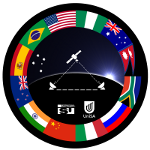REACH2020
Tele-reach For The Global South
What is Tele-Reach?
Tele-reach is a
process that includes “technologies and applications which allow remote
presence, participation or interaction or control” (Madry and Pelton, 2011).
This process allows people and organizations to complete tasks and activities
at a distance, whether they are teaching a course, conducting a business
meeting, performing a medical procedure, monitoring deforestation, or
generating power. A synergy of Information and Communication Technology (ICT)
infrastructures enables Tele-reach solutions..
Conclusion:
Reach2020
has identified a number pathways toward establishing a Tele-reach
solution for any given community within the Global
South. Identifying needs, defining policy, selecting
a business model, and providing infrastructure are required to
establishing a way forward. Within each Tier, the path may differ, but
the elements required are always the same. In order to maximize the
outcome at any tier in the next eight years, Reach2020 identified that:
a.
Enhancement of existing wireless infrastructures for smart devices in
remote areas and the integration of data services, satellite, and
ground communication networks have to occur at the initial design
stages for Tele-reach applications.
b.
Advances in renewable energy technologies can provide the
infrastructure support for Tele-reach applications in locations where
it was not previously possible.
c.
National policy will determine the level of commercial involvement in
Tele-reach implementation now and in the future. NGO and
inter-governmental agencies have a larger role to play in the
establishment and sustainability of Tele-reach in emerging nations.
d.
Funding mechanisms, standards, and charters need to support
collaborative regional and international activities in the Global
South. The importance of internet and IP services should not be
underestimated in this effort.
e.
Between now and 2020, ensuring the sustainability of space will be
critical for facilitating Tele-reach solutions in the Global South.
Recommendations:
a.
Resolve spectrum management in the introduction of new generation
wireless technologies.
b.
Nations should develop a national space policy or rhetoric to support
open data policy, cooperation, and collaboration to benefit regional
and international Tele-reach needs.
c.
Understand the implications of space sustainability to the future of
all space-derived data and information and how this might affect
Tele-reach solutions.
d.
Explore the opportunities internet-hosting and smartphones provide for
outreach and actionable Tele-reach solutions.


